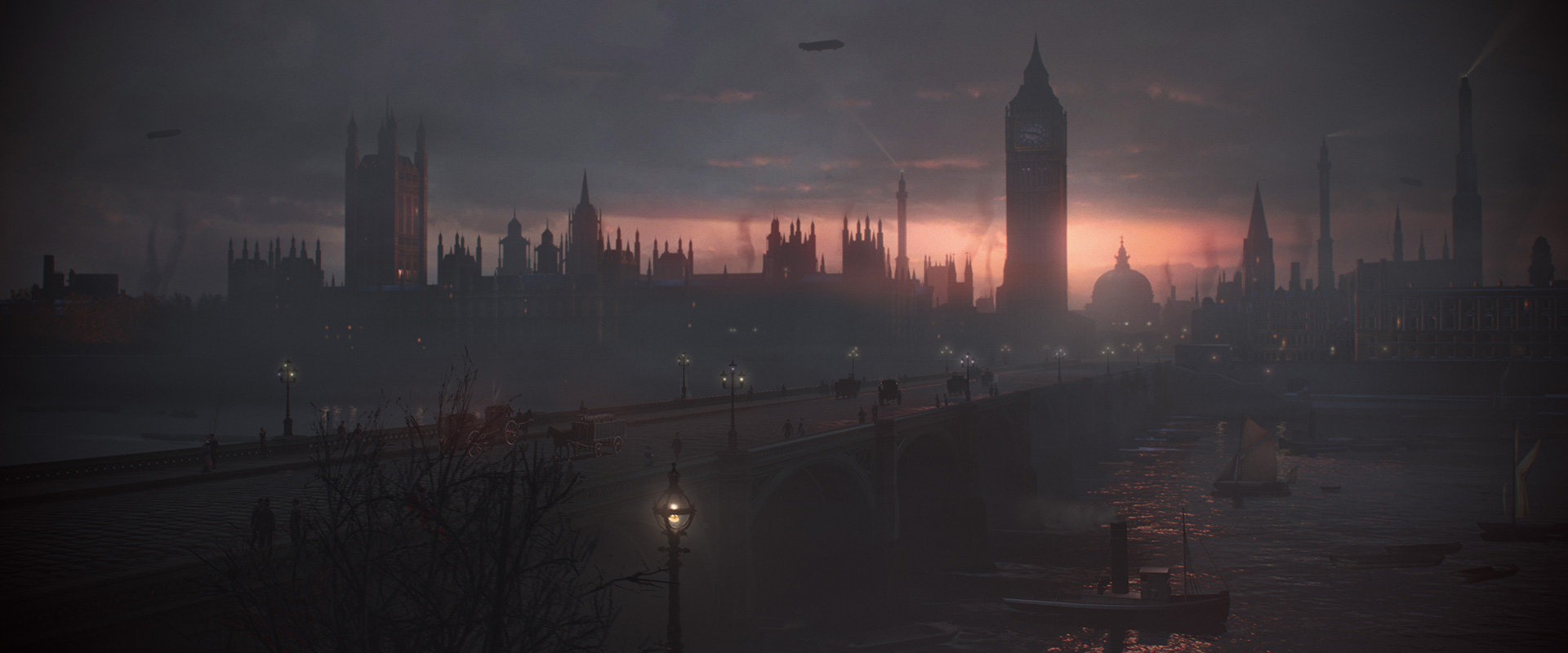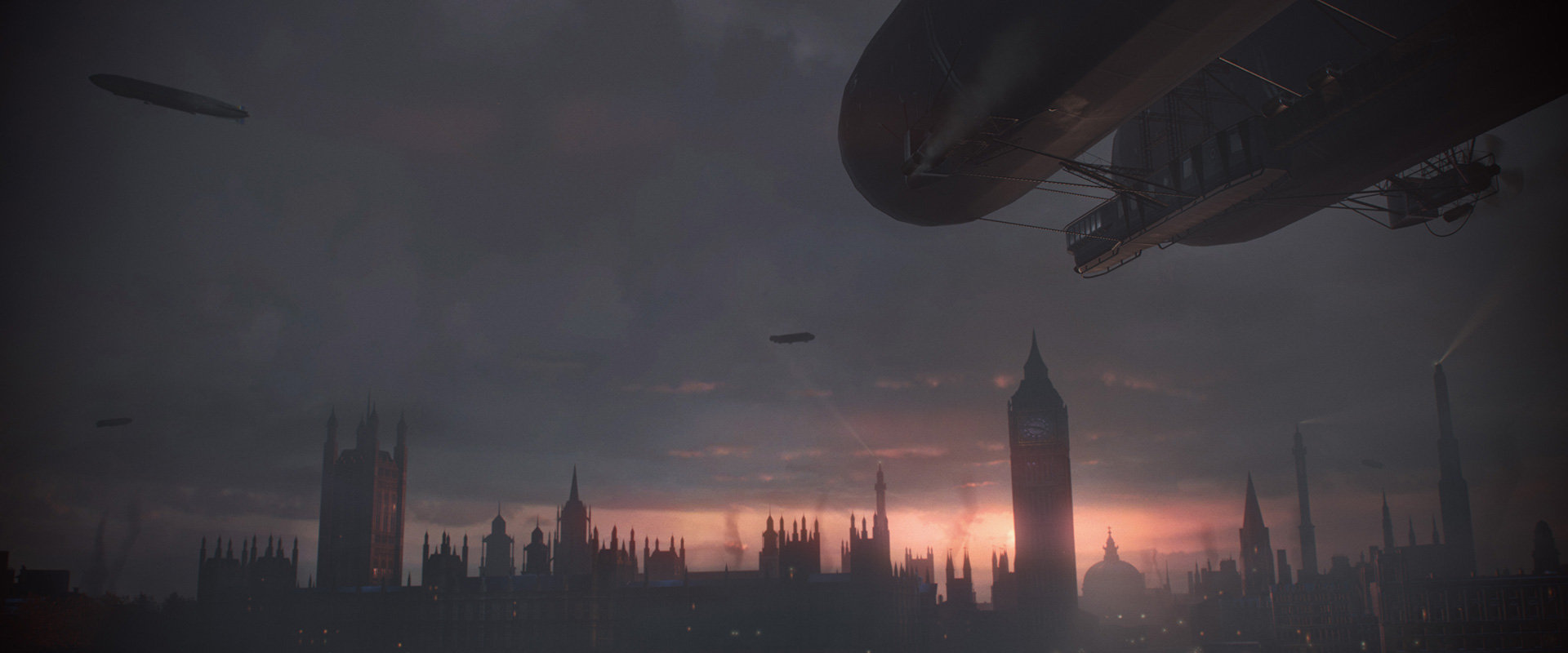Here are my thoughts on the merits and flaws of The Order 1886.
If I should summarize my feeling it would be “I'm interested in seeing more of this world. A visual feast where aesthetics are triumphant even if the narrative falters frequently.”
I will expand on this summary to clarify my statement and add weight to it.
This post might be a bit lengthy, as a result, because I want to explain my thoughts on why visuals are fantastic, why they are a lot more than a ‘shiny coating of graphics’ and why I think the writing should have explored the characters further before expecting us to relate to them or feel empathy for them.
Firstly, the point about visuals.
FPS, black bars, pixel density are the words I dislike and I won't discuss these unnecessary concepts. Unnecessary in the sense that in this discussion visuals are a lot more than anti aliasing or polygon count. I want to discuss the importance of visuals to enrich the world and make you forget that you are looking at a polygonal face.
A rich, vivid world has the power to transport you into another person’s living imagination. It's living because you are an active participant in it. In that regard, The Order’s visuals are a triumphant. They make you feel part of a living world, which I think is a great accomplishment. They achieved this, of course, through a lot of tech wizardry but an integral component of that was the art direction, level design and vivid imagination. This is to state that the world of The Order wasn’t held back by the fact that it was on a console. There was this cohesion and immaculate attention to detail which brought everything together to make you believe in the reality of its world and it absolutely worked in that regard.
Visuals are a great service and a companion to storytelling because they add atmosphere and an intensity to the action on the screen along with creating a visual language for storytelling. In that sense it’s a character in itself and in that regard make the experience of playing the game a very memorable one. The world of this game is not just an authentic replication of the real world, it actually represents the best version of our reality as everything in the game world is laid out and coloured in a way to invoke the sense of beauty and every room is lit in a way to further enhance the aesthetics. Our real world is a lot more crude in that sense, with much more bland lighting most of the time and far less symmetry or composition.
That was the strong point of the game but I also want to address a lesser part of the experience which is its story.The world carries the story as much as it can but soon the viewer realizes the shallow treatment of the characters and checklist methodology of writing to stir our emotional hearts. Sir Galahad is our protagonist and he is written in a very heroic fashion, a very decisive and stern human being who is incredibly brave in the face of danger and fights, what he thinks, is a good fight, fight against Lycan/Werewolves. But that fight quickly changes to a fight against a rebellion group who he assumes is related somehow to the Lycans. There was this glaring flaw in Sir Galahad’s personality where he leapt into an action without thinking it through. He had an assumption about the link between the rebel group and Lycans but he was insistent on thinking that he was right. His desire for investigation is rejected by the Order, rightfully so, but he pursues it anyways. His mission ends up costing so many lives of people he think are to blame because Galahad is very sure his side is correct.
so many needles deaths
I understand that war is bloody but the utter lack of remorse for life is what’s my disappointment in Galahad’s character. That cost also includes the life of his mentor Sir Percival. That death was supposed to make us sympathize with Galahad for his actions which follow soon after. His revenge plan, which I sadly could never get behind. His bond with Percival was never established as a relationship of any importance throughout the game, neither visually or through dialogue. A mere line before Galahad goes on his revenge trip about how he considered Sir Percival to be his father, is not enough to establish that bond. It’s lazy writing that thinking one line can convey a relationship which could have easily been established and fleshed a lot more in the game prior to the death. Due to this lack of establishment, my sympathies weren’t behind Galahad when he blindly starts killing more people, driven by his desire for revenge. There are other story tropes being used as well, for example Galahad’s decision not to share his secret plans with his trusted fellow Igraine which undoubtedly proves to be troubling later on. There are also instances in the game where the villain escapes and within a split second the team arrives on a scene where Galahad appears to be perpetrator, with a remarkably precise and unfortunate timing. All in all, when the tragedy strikes our protagonist, I can not feel sympathy for him, which is a weakness in writing because I had the constant impression that the creators wanted me to get behind the protagonist instead of establishing him as an anti-hero instead.
There are other things which I can talk about but i think I have expanded on my thoughts enough to say what I think works in the game and what doesn’t. For the sake of all the things that did work, I think this game should have had a sequel, as a chance to correct it's flaws and embrace it's merits fully.
Overall I’m impressed and for the atmosphere and world building alone, the Order is worth praising or at the very least worth playing.


